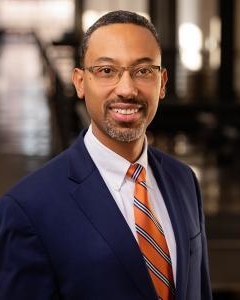April 15, 2021 – 1:00 pm, Plenary talk 2 for DCL Student Symposium 2021
Bluejeans link: https://primetime.bluejeans.com/a2m/live-event/hehxxuty

Andrew G. Alleyne
University of Illinois at Urbana–Champaign
Abstract
We live in an increasingly electrified world. For stationary applications such as industry and manufacturing, this statement has been obvious since the start of the 20th century as steam and belt drives in factories gradually gave way to electric motors for machining, conveyor lines, and all manner of other industrial applications. For domestic stationary applications, modern conveniences blossomed as electrification grew starting in the middle of the 20th century. Lighting, air-conditioning, cooking and cleaning, as well as many types of in-home entertainment were fueled by growing abilities to provide relatively cheap electrical power over long distances.
Now, a fifth of the way through the 21st century, we are seeing electrification rise in the mobile domain. The progress has been steady for several decades but it is really during the past several years that electrified mobility has seen a rapid growth at the level of individual consumer. Interestingly, this growth cuts across widely varying modes of mobility; from individual bicycles to on-highway vehicles to large ships and aircraft.
This talk will detail some of the trends in mobility domains and will discuss some of the technical challenges. For mobility systems, the power density is a key metric of performance that dictates viability of technology for use in the transport of goods and people. Of high relevance to Decision and Control audience that cross-cuts departments, we will discuss the interplay between modes of power distribution within electrified mobility systems. This includes the flow of power in the mechanical, electrical, and thermal domains. Several examples of challenges will be raised along with some solutions and open questions across the broad spectrum of Mechanical Engineering fields. In particular, we will demonstrate examples where the integration of different fields, in a systems-level approach, can afford significant advantages in power density.
Biography
Dr. Andrew G. Alleyne (F’17) received the B.S.E. degree from Princeton University, Princeton, NJ, USA, in 1989, and the M.S. and Ph.D. degrees from the University of California at Berkeley, Berkeley, CA, USA, in 1992 and 1994, respectively. He held visiting professorships at TU Delft, Delft, The Netherlands, the University of Colorado, Boulder, CO, USA, ETH Zu?rich, Zu?rich, Switzerland, and Johannes Kepler University, Linz, Austria. He is currently the Ralph and Catherine Fisher Professor with the University of Illinois at Urbana–Champaign, Urbana, IL, USA, and the Director of the NSF ERC on Power Optimization for Electro-Thermal Systems (POETS). He works the modeling, simulation, and control of nonlinear mechanical systems. His academic record includes supervision of over 80 M.S. and Ph.D. students and over 400 conferences and journal publications. Dr. Alleyne is a fellow of American Society for Mechanical Engineers (ASME). He serves on the Scientific Advisory Board of the U.S. Air Force and the National Academies Board on Army Research and Development. Recognitions include the IEEE CSS Distinguished Lecturer, a Fulbright, the Gustus Larson Award, the Charles Stark Draper Award, and the Henry Paynter Outstanding Investigator Award.